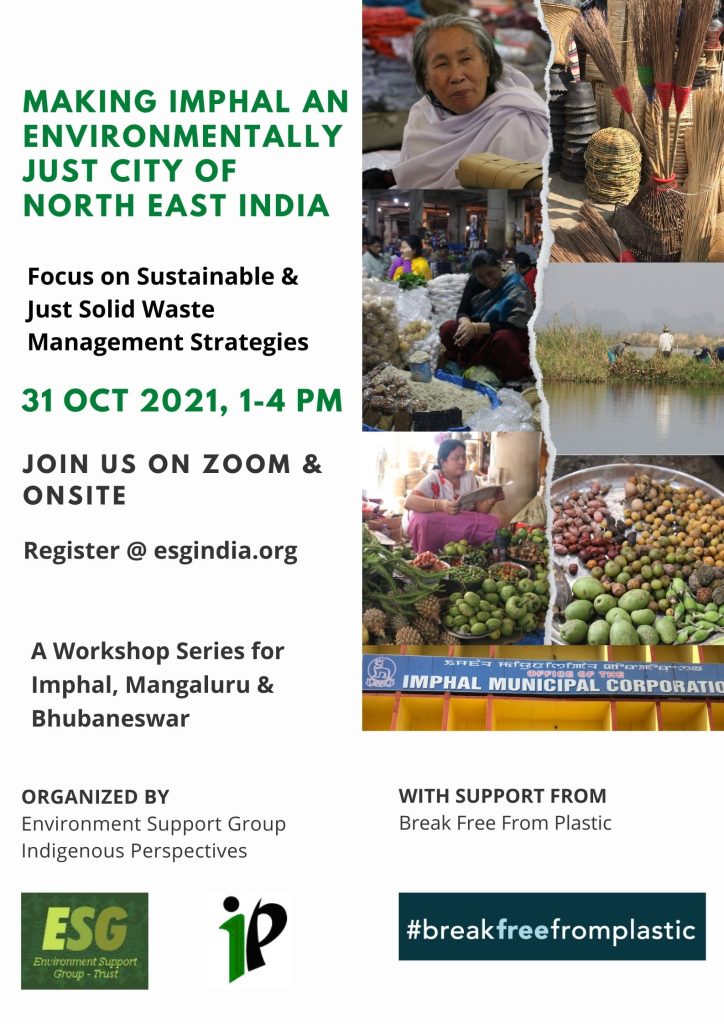Making Imphal an Environmentally just city of North East India
Focus on Sustainable & Just Solid Waste Management Strategies
Event Report
Event Recording

“Managing Imphal’s Solid Waste: Advancing Socially Just and Environmentally Sustainable Solutions” was the first session in a 3-part workshop being conducted across India with support from Break Free From Plastic. The session was conducted in Meitei and English and was attended by representatives of local waste worker unions, fishing unions, student unions, local administrators, and NGOs. This is the latest in ESG’s longstanding efforts to work with communities in different parts of the country to address the challenges posed by waste mismanagement to environmental and public health and to use these as an opportunity to promote decentralized and democratic urban governance. The local representatives spoke about the unique context of Imphal, which was followed by a discussion by ESG on how it has promoted progressive solutions to tackling waste in Karnataka over the last two decades.
About Imphal
At the end of 2019, the city was generating about 130 metric tons of solid waste daily. A poorly implemented plastic ban has been one of the measures taken to curb the garbage menace, which is choking streams and rivulets in the city, as well as the rivers draining the Imphal Valley into the amazingly productive and extraordinarily biodiverse Loktak Wetland region. The city continues to grapple with the problem of growing waste. Insanitary dumping at Imphal’s Lamdeng Waste Management and Treatment Plant precipitated a crisis two years ago, with strong protests from affected locals preventing access to the plant, resulting in dumping in open spaces for several months. The plant has now been converted to a Waste to Energy facility, developed through a public-private partnership model. Opportunities to engage with the 5000 women who run Imphal’s Ima Keithel market, in imagining locally appropriate and sustainable solutions to waste and plastic management, remain untapped as of now.
Speakers:
- Dr T. Brajakumar, Deputy Director, Directorate of Environment, Manipur
- Madam Tama Kshetrimayum, Upadhyaksha, Imphal East and President, Roadside Vendors Welfare Association, Khwairamband Ima Keithel
- Rajen Oinam, Secretary, All Loktak Lake Areas Fishers Union Manipur (ALLAFUM)
- Madam Thangjam Ganga, Secretary, Chingmeirong Maning Leikai Nupi Chaokhatlup
- Sana Huque, Assistant Coordinator (Research), Environment Support Group, Bangalore
- Malvika Kaushik, Assistant Coordinator (Legal), Environment Support Group, Bangalore
- Moderator: Ram Wangkheirakpam, Secretary, Chingmeirong Maning Leikai Singlup and Executive Director, Indigenous Perspectives, Imphal


We need to return to the past where no plastic where available.only paper bag,banana leaf n card box were used.these plastic waste were mix with butamin for road construction in advance state.besides we can use for various house hold need too.only thing is self determination needed